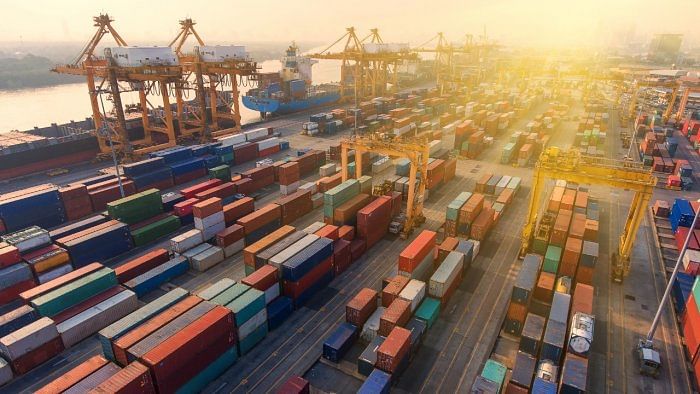
The objectionable remarks made by BJP leaders Nupur Sharma and Naveen Jindal against Prophet Mohammed received global condemnation, especially the way Gulf countries, Kuwait and Qatar reacted. One of the reasons behind such immediate and strong reactions, and subsequent furore, could be the power equations within the Arab world and their respective relationship with India.
Qatar was one of the first countries to express concerns to Indian ambassador handing out protest notes condemning Sharma’s and Jindal’s remarks. According to a spokesperson of the Indian Embassy in Qatar, the ambassador sought to defuse a diplomatic row and “conveyed that the tweets do not, in any manner, reflect the views of the Government of India. These are the views of fringe elements.”
A report by The Economic Times suggests that Qatar, in its continuous attempt to emerge as the leader of the Organization of Islamic Cooperation (OIC), desires more attention from India, when the latter’s ties are getting stronger with the United Arab Emirates and Saudi Arabia.
With Qatar desiring to emerge as a global economic player, its relations with Saudi Arabia have not been impressive since the diplomatic crisis that has been in place since the early 2010s. Qatar’s conflict with Saudi Arabia — over a number of issues — has increased on the international forum with Qatar aspiring a larger hold than Saudi, even though both are members of the Gulf Cooperation Council.
India has maintained — even transformed — its relations with the UAE and Saudi Arabia due to the Gulf countries’ increased investment in India and bilateral trade. The UAE has even emerged as the only country in the OIC which has a free trade agreement with India. India’s ties with Qatar and Kuwait are significantly less in terms of trade.
India’s diplomatic ties with Oman, on the other hand, have maintained the status quo during these years. India hosted Oman’s foreign and trade ministers in March and May 2022, and engaged in a joint air exercise in February. It also hosted Oman’s defence secretary and navy chief between January and February 2022. India’s outreach in the Western Indian Ocean significantly depends on Oman.
|
| Total Imports | Total Exports | Total Trades | Ranking |
|---|---|---|---|---|
| UAE | 334,469.42 | 209,158.28 | 543627.71 | 3 |
| Saudi Arabia | 254,677.67 | 65,310.14 | 319,987.81 | 4 |
| Qatar | 98,459.80 | 13,703.26 | 112,163.05 | 21 |
| Kuwait | 82,114.71 | 9,263.88 | 91,378.59 | 27 |
Data from the Ministry of Commerce and Industry suggests that India’s trade with Qatar is over 185 per cent less than that of Saudi, which is currently the voice of the Muslims in the Islamic world.
While India did not take any sides during the diplomatic crisis between Saudi Arabia and Qatar due to its traditional goodwill in West Asia, it emerged as a key food supplier to Doha during that crisis, just as it did during the first phase of Covid-19 in 2020. Vice President Venkaiah Naidu’s recent Qatar visit was also significant, as he gave an assurance on food security to the Qatar government.
In terms of investment, both Qatar and Kuwait have been low investors in India in contrast to the UAE and Saudi Arabia. However, both emerged as suppliers of medical oxygen to India while it faced a crisis during the second wave of Covid-19.
While India and Qatar have engaged in new areas that primarily aim at more people-to-people contact and enhancing economic relations, the reaction of Qatar can be attributed to its desire to become equally close to India as the UAE and Saudi Arabia. It can also be seen as an attempt to influence the India-UAE and India-Saudi ties by bringing in more external actors in the fray, thereby positioning itself as the emerging leader of the Islamic world.